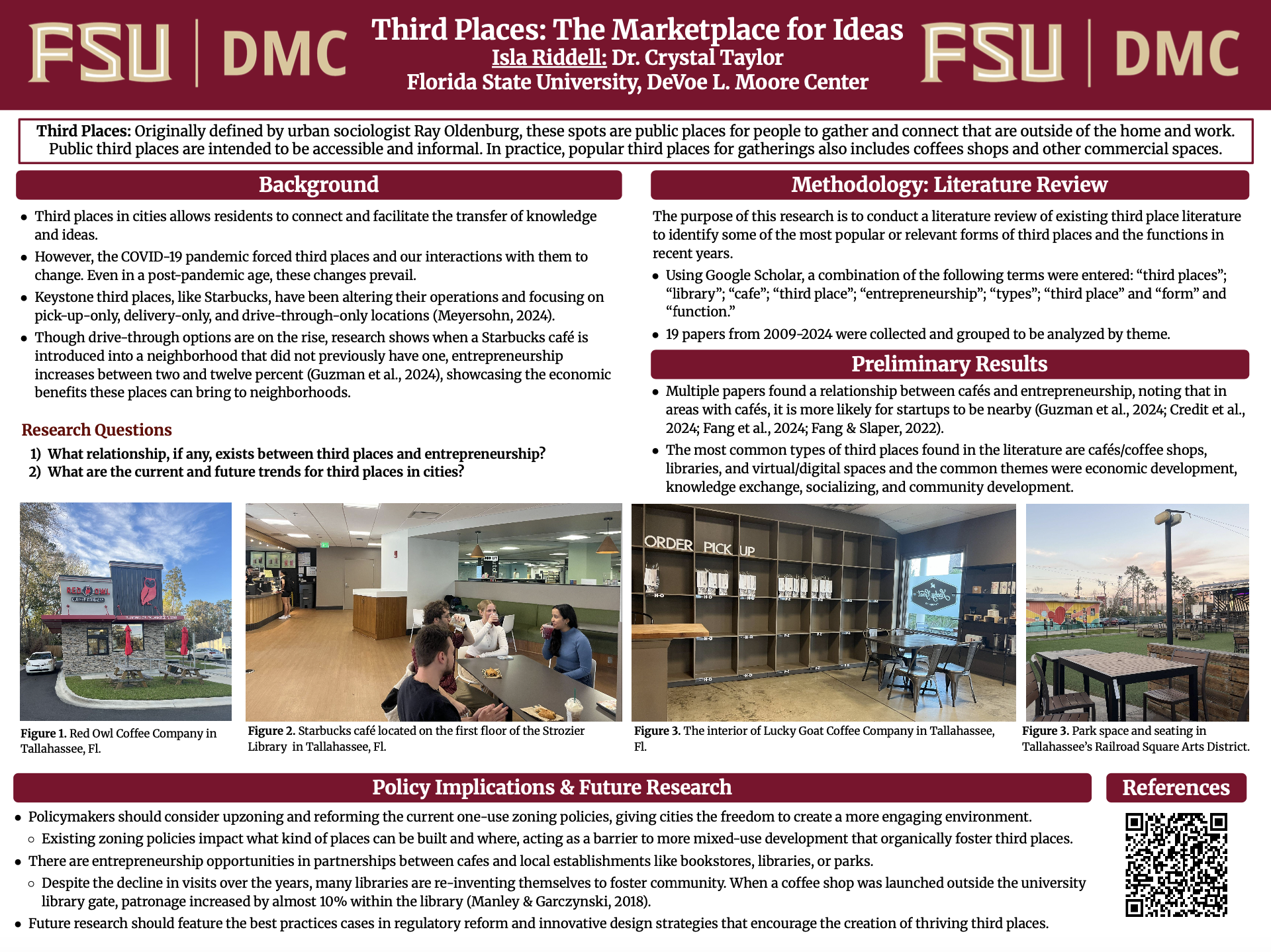Research Symposium
25th annual Undergraduate Research Symposium, April 1, 2025
Isla Riddell Poster Session 4: 3:00 pm - 4:00 pm / Poster #241

BIO
Isla is a senior Interdisciplinary Social Science major, specializing in Urban Studies and Urban Sociology. She joined the DeVoe L. Moore Center in August 2024 as a public policy intern. Her research focuses on the relationship between entrepreneurship and third places. Outside the DMC, Isla is involved with University Housing where she works as a Desk Assistant.
Third Places: The Marketplace for Ideas
Authors: Isla Riddell, Dr. Crystal TaylorStudent Major: Interdisciplinary Social Science
Mentor: Dr. Crystal Taylor
Mentor's Department: DeVoe L. Moore Center Mentor's College: College of Social Science and Public Policy Co-Presenters:
Abstract
Not home or work, third places are instrumental spots within a community for people to gather and connect. Examples of third places include coffee shops, libraries, and parks. However, they are changing, as places like Starbucks see an increase in drive-through-only and pick-up-only locations. Despite this, research shows when a Starbucks cafe is introduced into a neighborhood that did not have one, entrepreneurship increases (Guzman et al., 2024), showcasing the economic benefits these spaces can bring. This research asks “What relationship, if any exists, between third places and entrepreneurship?” and “What are the current and future trends for third places in cities?”
A literature review was performed to identify the most commonly studied forms and trends related to third places with a specific search conducted for entrepreneurship. Based on the reviewed papers, the different functions of third places were categorized.
Preliminary results reveal the most common types of third places studied are cafes/coffee shops, libraries, and virtual/digital spaces. The common themes were economic development, knowledge exchange, socializing, and community development. Multiple papers found a relationship between cafés and entrepreneurship, noting that in areas with cafés, startups are more likely to be nearby.
Policymakers should start thinking creatively about partnership and mixed land use opportunities. There are entrepreneurship opportunities in partnerships between local (or even chain) cafes and local establishments. Policymakers should also consider reforming the current one-use zoning policies. Future research should feature the best practice cases in regulatory reform to encourage the creation of third places.
Keywords: third places, entrepreneurship, zoning, cafés


